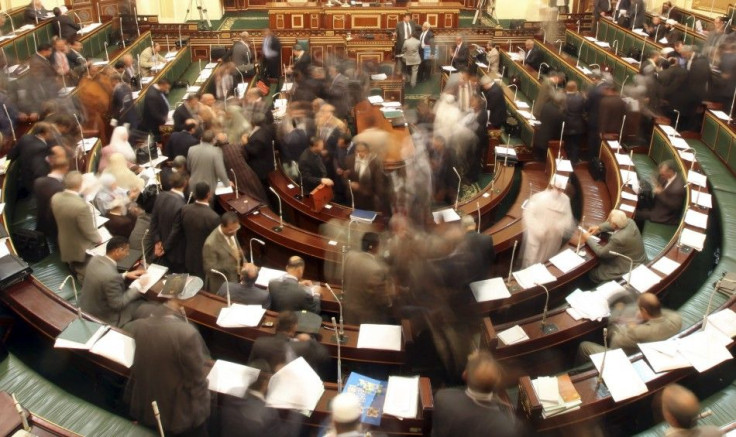Running On Empty In Cairo
Opinion

The Egyptian government is, quite literally, running out of gas.
So says the country’s petroleum minister, who estimates that Egypt is on track to deplete key strategic energy reserves in the very near future. In a recent interview with Turkey’s Anadolu News Agency, Petroleum Minister Sherif Haddara disclosed that the country’s stocks of three strategic fuels -- diesel, butane and petrol --might run out by month’s end, if not sooner, unless the government receives an infusion of cash from foreign donors.
But this looming energy deficit is just the tip of the iceberg. "Economic achievements during the last period did not match our much higher hopes,” Egyptian economics professor Khalid Abdel Hamid recently mused to Al-Jazeera. “Sometimes winds blow in the wrong direction."
That’s something of an understatement. The economic picture in Cairo is dire -- and getting worse by the day. According to informed estimates, nearly half of the country’s 85 million citizens now exist “in a state of poverty” -- living either below the poverty line or just above it. Unemployment is also widespread, officially pegged at 13.2 percent. But this joblessness isn’t uniform: the country’s youth have been hit hardest, with 1 in 4 young Egyptians estimated to be out of work.
The country’s national currency, the Egyptian pound, has lost nearly a quarter of its value in the two-plus years since the ouster of former President Hosni Mubarak, and now stands at 7.1 to the U.S. dollar. This has made it more and more difficult for Egyptian businesses and institutions to conduct business (as is the case for the nation’s hospitals, which are now experiencing chronic shortages of medicine). It has also wreaked havoc on the purchasing power of ordinary Egyptians; fully a quarter of Egyptian families already spend 50 percent or more of their income on food. That’s because prices for staple goods such as bread and meat have soared in recent months, steadily outpacing the ability of Egypt’s citizens to acquire them. In the process, they have raised the specter of mass hunger on a national level.
So what's Egypt’s government doing about this? The answer, sadly, is “not much.” Egypt’s current crop of Islamist leaders, wary of renewed social unrest and cognizant of how fragile their hold on power truly is, have steered clear of enacting significant structural reforms to the country’s economic sector. (This isn't without reason; the last time the Egyptian state fiddled in earnest with subsidies, in 1977, it prompted major riots over the cost of bread.)
Instead, they increasingly have come to depend on the largesse of the international community. Egypt so far has acquired more than $5 billion in loans and grants from a variety of foreign sources, including wealthy Arab Gulf states and the U.S. itself. But that sum makes up less than half of the roughly $1 billion monthly that the Egyptian government requires to remain solvent. And the government has little prospect of generating more, because the ideologically-driven policies of Egypt’s Islamist leaders have depressed foreign direct investment, discouraged further lending (from the International Monetary Fund in particular) and neutered the tourism industry, which once served as the lifeblood of the national economy.
As a result, the Egyptian government has begun to devour itself. The country’s foreign exchange reserves have constricted precipitously, plummeting from $36 billion at the end of the Mubarak era to just $14.4 billion as of April 2013. That, observers say, amounts to “less than three months' import coverage” -- a dangerous state of affairs for an “import-dependent” economy like Egypt’s.
The deepening economic disorder now plaguing Egypt is unprecedented in both scope and scale. According to Galal Amin, of American University in Cairo, one of the country’s leading economists, it represents the country's “worst economic crisis since the 1930s.” The imminent energy shortfall outlined by Haddara last week is just another sad symptom of it.
It does, however, raise a serious question: If Egypt’s government has been unable to pull the country out of its fiscal nosedive so far, how will it fare when it is forced to do so with the nation at a standstill?
Ilan Berman is Vice President of the American Foreign Policy Council in Washington, DC.
© Copyright IBTimes 2025. All rights reserved.





















